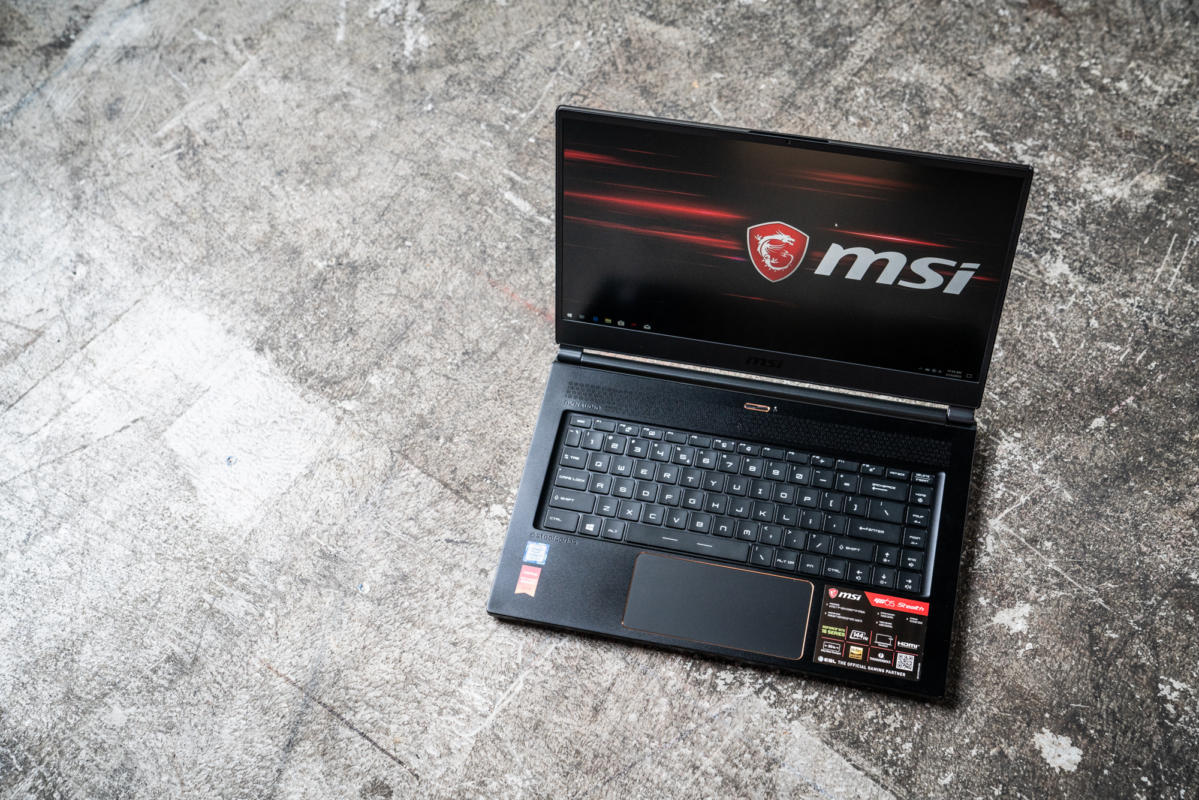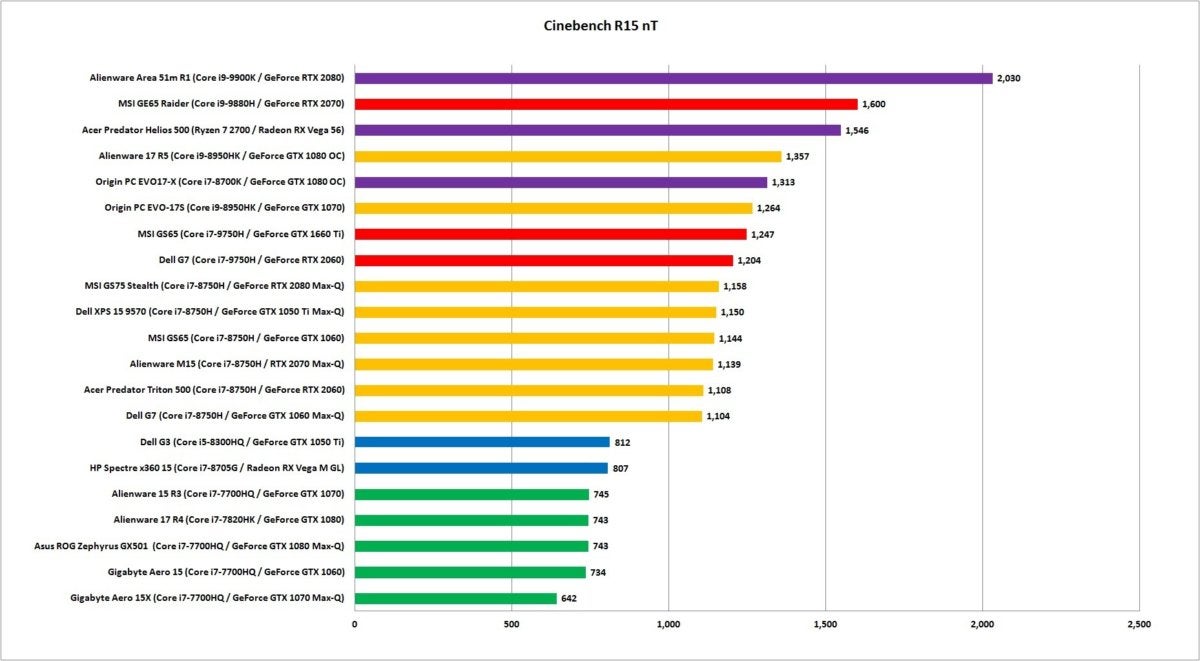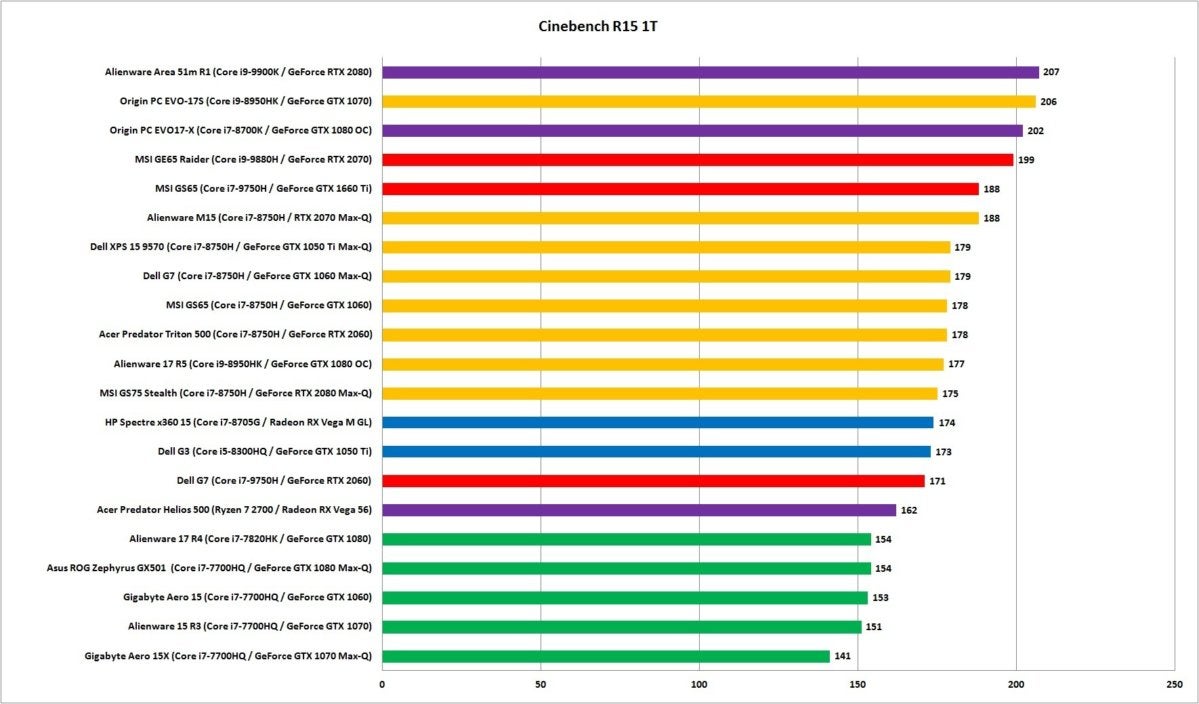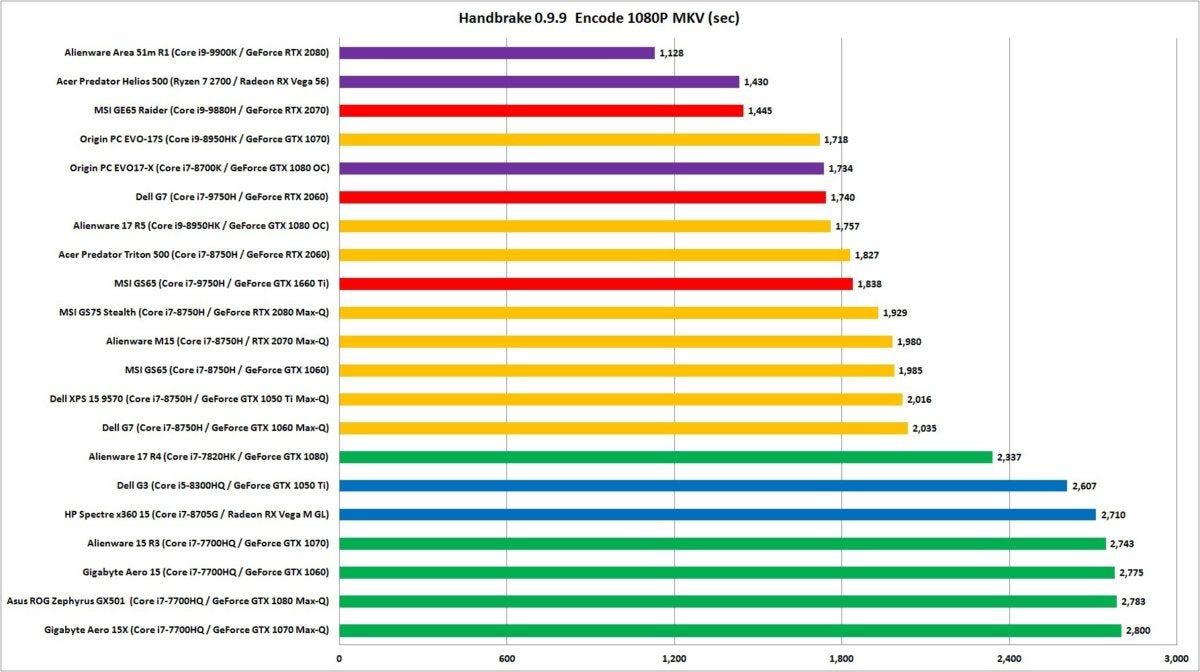Should you buy a laptop with Intel’s 8th-gen or 9th-gen CPU? We run the benchmarks - hopkinscooncers
What's the best Processor for your gaming laptop right now? We understand if you're confused. We're currently in an unprecedented state where new laptops based on Intel's 9th-gen CPUs are along cut-rate sale next to newfangled laptops supported Intel's 8th-gen and even 7th-gen CPUs.
The reason is apt Intel's notorious CPU shortages, which jammed up the pipeline for laptop computer makers. After all, selling a laptop computer with a slightly older CPU is better than non having any laptop to deal out at all. Unfortunately, for consumers, you're now looking at similarly priced laptops with different "generations" of Intel Processor.
We've already gone into the spec-away-specification differences between Intel's 8th-gen and 9th-gen mobile CPUs. Now that we've tested a number of laptops in both generations, we can tot up bench mark data, compiling results from 8th-gen and 9th-gen H-division laptops we've seen ('H' denotes high performance). We've too thrown in 7th-gen H CPUs. Spell fairly elderly now, we're unmoving seeing stocks of 7th-gen-based gambling laptop options on shelves.
The short solvent is, when choosing between equal core-count chips, such as a 6-core Core i7-8750H or a 6-core Core i7-9750H, don't lather IT. If you'ray look at a Core group i9-grade of public presentation, so yes, IT matters.
Oh, and father't worry besides much about the 10th-generation laptop CPUs approaching subsequently this twelvemonth. We looked at the reasons to wait for 10th gen (operating theater not). While the new architecture brings both notable improvements, based on very early preview benchmarks we anticipate the performance uptick will be additive.
Keep reading for whol the details.
 Adam Patrick Murray
Adam Patrick Murray MSI's updated GS65 Stealth Thin features a 9th-gen Core i7-9750H and Nvidia's new GeForce GTX 1660 Ti GPU.
Here's what we ran
The psychometric test results we'Re showing are almost entirely Mainframe-focused and mostly aren't affected past storage, graphics, or RAM differences.
The first chart is Maxon's Cinebench R15. It's a touristy bench mark that measures how well a CPU will do when rendering a 3D scene. This task doesn't e'er render into completely use cases, but it gives you a general idea of how a CPU leave execute in a very efficient multi-threading environment.
In the graph below we see the newest 9th gen in ruddy, the previous 8th gen in jaundiced, the even older 7th gen in green, and background CPUs crowded into laptops in purple.
From a performance suck in multi-core apps, you can see that the red ink 9th-gen 6-core laptops generally do fortunate, are slightly quicker than most of the yellow 8th-gen laptops. The two 8th-gen laptops that slightly outperform them are the quickest Core i9 6-core laptops in larger 17-inch, thicker-bodied shells. Candidly, we'd say this matches what we said months ago when Intel foremost introduced these: Yawn. There is a flimsy execution extrusion for 9th-gen 6-core CPUs, but not enough to get excited about it.
If you want excitement and you do multi-rib tasks, the one sphere of interest is the penetrate. The 7th-gen laptops all in green feature "sole" four cores, thus you'll see a portentous performance departure.
 IDG
IDG We've colored the 9th-gen mobile laptops CPUs purple, 8th-gen orangeness, and 7th-gen green. Chromatic bars indicate laptops made with desktop-grade CPUs, and disconsolate is rightful motley.
Army of the Righteou's non forget single-core performance, which encompasses the web-browse, Office productiveness, and even pic editing that most of us doh every day. We again purpose Cinebench R15, only we put up it to utilize only a single CPU thread or core. While Cinebench is a 3D interpreting coating, which agency it won't necessarily translate to what you'll go far another task, we think it gives you a very good approximation.
The results are connatural to what we saw above, but the gap has closed. The main discriminator is what megahertz each laptop is running at. By and large we'd say 9th-gen laptops are slightly faster, and 7th-gen laptops look slightly wagerer. In short, if you generally stick to single-threaded tasks, even a 7th-gen CPU volition do just fine, and more or less of the newer chips would be overkill.
 IDG
IDG We've gold-colored the 9th-gen mobile laptops CPUs purple, 8th-gen orange, and 7th-gen green. Rhetorical bars indicate laptops successful with screen background-ground level CPUs, and blue is just general.
Our go set of results measures how long to each one laptop took to convince a 30GB video using HandBrake. The free and popular app loves CPU cores, only also can use GPUs for encoding. In this test, we follow CPU encoding.
Unlike Cinebench, which takes about a minute to run, our HandBrake encipher typically takes 30 minutes on a 6-core CPU. The lengthened run helps U.S.A identify the CPUs that throttle performance to bring off their thermals.
We meet tierce clean-cut bands of performance: The 8-core CPUs have the advantage, finishing the process in 23 minutes or inferior. The 6-core laptops mostly get hold around the 30-infinitesimal mark. The 4-core laptops come in dead last around the 45-narrow mark.
The takeaway: If you do a lot of video encryption, you'll wishing a 9th-gen 8-core CPU. If you're looking 8th-gen vs 9th-gen with 6 cores? Put on't even interest about the Central processor contemporaries—center other features of the laptop that interest you.
As for 4-core laptops? You're paying a pretty respectable performance penalty in multi-core workloads. Keep in brain, that if the laptop is primarily a traditional gaming model, IT's perfectly acceptable—but that doesn't mean you should get under one's skin soaked on one when an 8th-gen or 9th-gen laptop computer is on hand.
 IDG
IDG We've colored the 9th-gen mobile laptop CPUs purple, 8th-gen orange, and 7th-gen green. Violet bars point laptops made with desktop-grade CPUs, and blue is just miscellaneous.
Conclusion
The benchmarks show that you needn't sweat the Central processor differences on Core i7-level laptops betwixt 8th-gen and 9th-gen. The functioning differences are very slight and look more on the cooling blueprint of each laptop. Instead, centre your choice on the differences betwixt graphics cards, the amount of RAM, the SSD capacity, or the concealment.
If, nonetheless, you are buying this laptop for multi-core performance, the 8-core 9th-gen Core i9 laptops spring you real performance benefits.
Source: https://www.pcworld.com/article/397789/benchmark-testing-should-you-buy-intel-9th-gen-8th-gen-or-7th-gen-cpu-in-your-laptop.html
Posted by: hopkinscooncers.blogspot.com


0 Response to "Should you buy a laptop with Intel’s 8th-gen or 9th-gen CPU? We run the benchmarks - hopkinscooncers"
Post a Comment